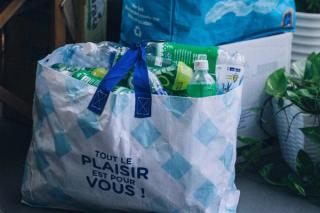
Building Near Rail Lines in Canada: How to Manage Noise, Vibration, and Approvals
by Ben Adler
View post

In early 2018, the UK Government’s 25 Year Environment Plan for England, committed to the development of, and consultation on, a deposit return scheme (DRS) for drinks containers.
This was seen as being a priority to help move the UK towards a circular economy, where resources are protected and kept in use for as long as possible and the generation of waste is minimised.
Objectives around the scheme were set out in UK Government’s Resources and Waste Strategy. This included looking at how the scheme would sit alongside other measures to boost recycling and how it would operate, both in terms of administration and governance arrangements. Two consultations have subsequently been held on the development of a DRS. The responses from the latest consultation, which were long awaited and finally released on 20th January 2023, set out the plans for a UK-wide DRS (excluding Scotland, which has already committed to introducing its own DRS in 2023).
The consultation response suggested that with the UK’s current recycling rates for drinks containers sitting at around 70%, approximately 4 billion plastic bottles and 2.7 billion cans remain that are not recycled every year[1]. It is concluded that a well-designed DRS for drinks containers could deliver recycling rates of 90% or higher.
DEFRA announced, within its recently issued consultation response, that a DRS for beverage containers will be rolled out in England, Northern Ireland, and Wales by October 2025. Drinks containers which are to be ‘in scope’ will include all-in (50ml to 3 litre capacity) containers made from polyethylene terephthalate (PET) plastic, and also steel and aluminium cans for all three nations. Wales also intends to include glass bottles within its system. Caps / lids will also be included within scope, although redemption of the deposit will not be dependent on the presence of the cap at the point of return.
The consultation response failed to provide an assessment on any anticipated profit or loss which councils might make from the scheme. While an impact assessment is not due to be completed until later this year, it is understood that local authorities and waste operators will be able to claim any unredeemed deposits which end up at waste facilities including materials recycling facilities (MRFs) and waste transfer stations, although DEFRA anticipates that the scheme will collect up to 90% of in-scope containers placed on the market within three years of its introduction.
It was also previously mentioned that a reduction in litter could lead to savings for councils. An Impact Assessment highlighted, within the first consultation, that an ‘all-in’ DRS could see annual litter clean-up savings within the region of £86m by the third year of operation.
The consultation response leaves questions around how councils might claim deposits back from the unredeemed in scope drinks containers which end up at MRFs. These containers bypass the reverse vending machines and so it will be difficult to receive the deposit and leaves questions around how the material can conveniently be separated out, so that the deposit can be recouped. Whether the separation process cost will be worth the deposit return is currently unknown, but the process will need to be economically viable in order for councils and waste management companies to accommodate the necessary systems.
There are other operational concerns around the introduction of a DRS for councils, including the reduction of material requiring kerbside collection. This is particularly the case for councils who have recently, or are in the process of, transitioning their recycling service to kerbside sort, in many cases requiring significant investment in purpose-built vehicles (e.g. Romaquip) with separate compartments for different material streams. The size of individual compartments is based on the composition of the council’s dry recycling, therefore a reduction in drinks containers collected at kerbside will result in increased unused space within the vehicle, or a requirement for reconfiguration.
There are a number of unknowns around the introduction of a DRS, but SLR is supporting our clients during this time to find solutions and make the transition as smooth and successful as possible.
SLR’s Sustainable Waste Management team can support local authorities in modelling and evaluating the potential impacts of a DRS on service provision and budgets, which could include changes to kerbside material tonnages, quality and value. Additionally, the team can help with informing future service modifications and other service options which consider the wider implications of the UK Resources and Waste Strategy (e.g. the proposal for consistency in household and business recycling collections). Members of the team have hands-on experience of delivering service transition, gained from previous roles within local authority waste services and some of the UK’s leading waste collection services providers.
[1]https://assets.publishing.service.gov.uk/government/uploads/system/uploads/attachment_data/file/1130296/DRS_Government_response_Jan_20